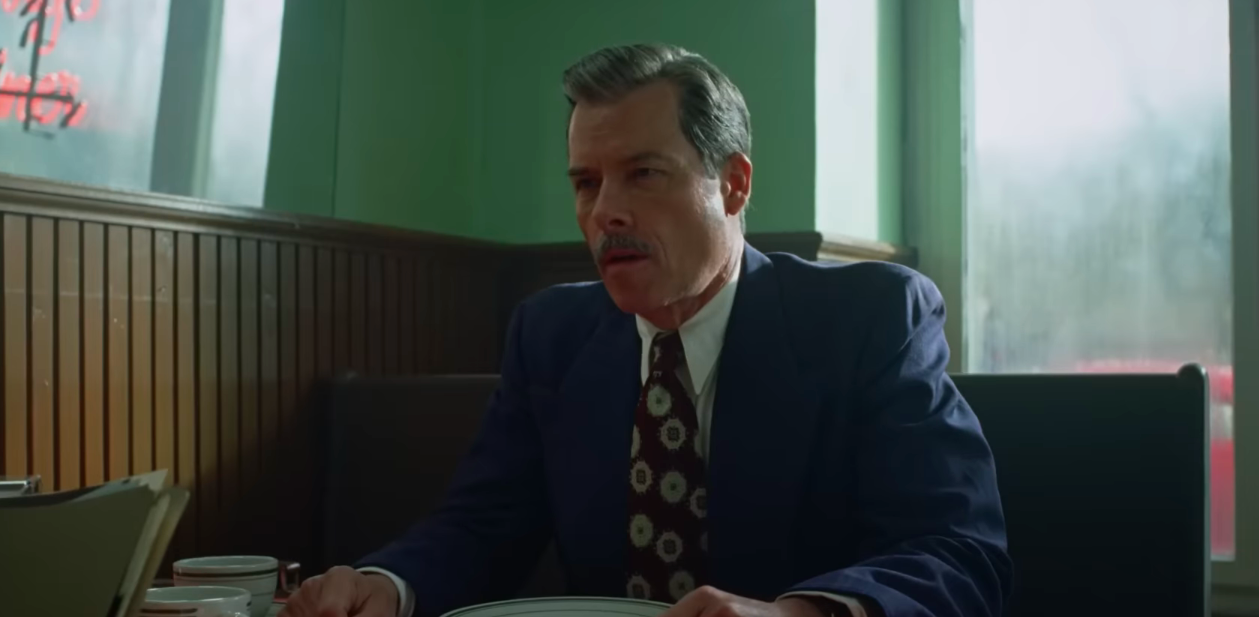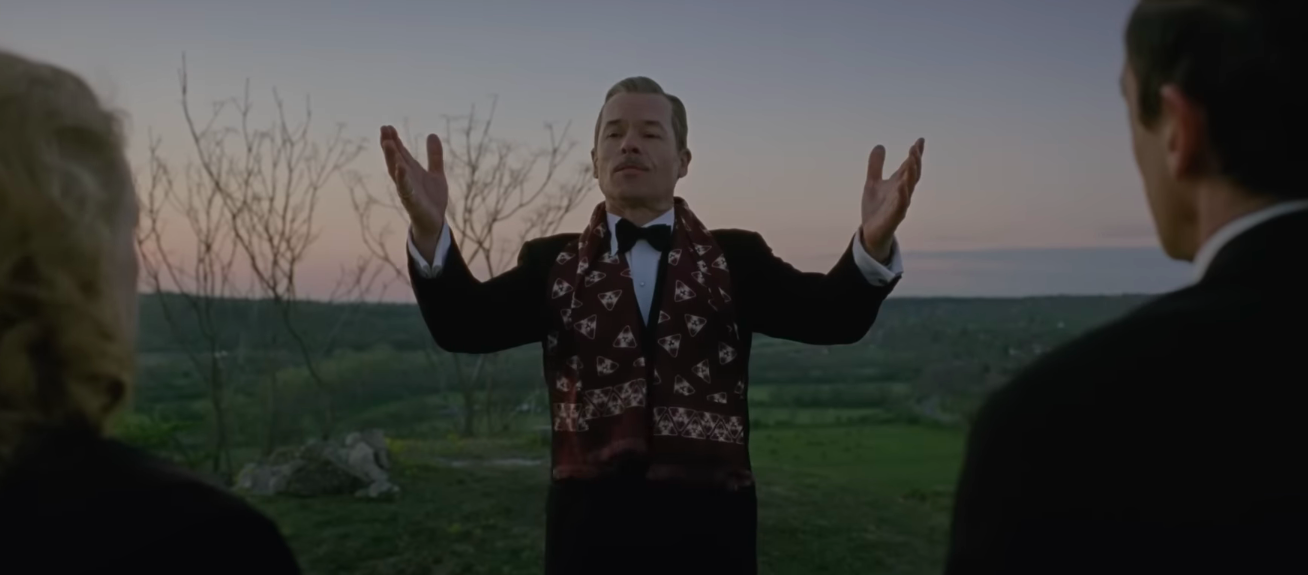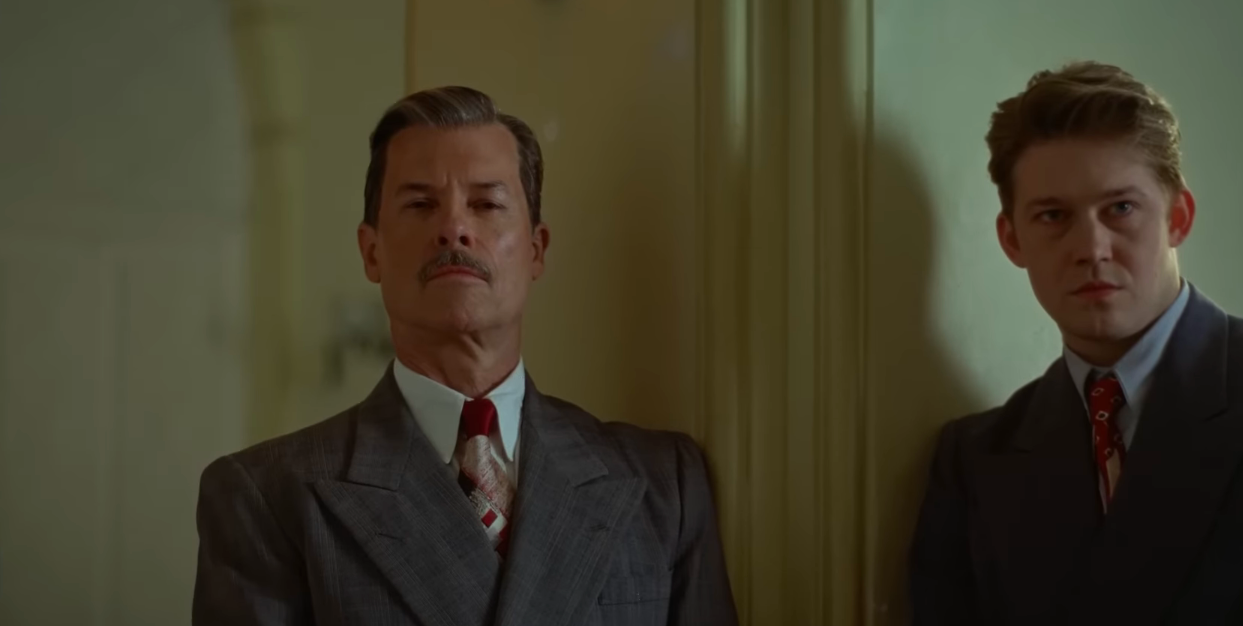Starring Adrien Brody as László Tóth, ‘The Brutalist’ follows the story of an architect who comes to America with hopes and dreams after living through a particularly devastating time in human history. Having survived the Holocaust, he now looks forward to building a new life, and he gets a chance to do so when a wealthy industrialist named Harrison Lee Van Buren asks him to build a community center for him. In the beginning, Harrison appears as a patron who is deeply supportive of László’s creative mind, but soon, we see that there is a completely different side to him, which might feel disturbingly real to some viewers.
Harrison Lee Van Buren is a Fictional Antagonist in The Brutalist
As real as the characters and events of ‘The Brutalist’ might seem, they are all entirely fictional, including the despicable Harrison Lee Van Buren. The character was created by Brady Corbet and Mona Fastvold to depict the complex nature of the relationship between an artist and a patron. The couple drew from their own experience in the field of filmmaking, especially the time during the making of their 2018 film, ‘Vox Lux,’ starring Natalie Portman. The writers wanted to bring to the screen the nature of this dynamic that often turns exploitative from the patron’s end, where their money and resourcefulness become powerful tools to make the artist dance to their tune. At the same time, the artist is ready to stretch themselves painfully thin in service of their dream project.

This exploitation and manipulation become the core of Harrison’s character, and Guy Pearce sees him as such. When approaching the character, the actor thought of a trophy hunter who sees László and his art as his prize that he has hunted and killed or rather controlled. Pearce revealed that the idea was always to have Harrison as someone who has a sophisticated understanding of art. This person has the ability to identify and appreciate genius, but at the same time, he cannot rise above his insecurities, so he tries to control what he cannot create.
Another thing that Pearce focused on was the unpredictable nature of the character, where no one knows how he is going to react. One time, he is angry with László over meddling with his library, and later, he seeks out the architect and puts the library he built on display for his guests to admire. One moment, he lifts up László by praising the creativity and the intellectual stimulation he provides, and later, he diminishes the man through despicable words and actions. Pearce saw it as a result of his envy for a creative genius like László. But at the same time, he saw Harrison as a performer who does a lot for the sake of appearances.

When Corbet and Fastvold wrote the character, they reportedly had actors like Joseph Cotten and James Mason in mind. Pearce, on the other hand, drew upon actor Danny Huston to develop Harrison’s accent. He wanted the character’s voice to have the duplicity of appearing as nice and civil but also have a certain amount of condescension that is also reflected in Harrison’s words and actions. Still, the actor didn’t see all bad in the industrialist. He could relate to his grief for his mother and his desire to create something of a monument in her memory. At the end of the day, however, he sees Harrison as the dark side of the so-called American dream and an unsettling but realistic representation of capitalism and how it can appear as a savior but also suck the creativity out of an artist.
Read More: Is László Tóth Based on a Real Architect and Holocaust Survivor?


